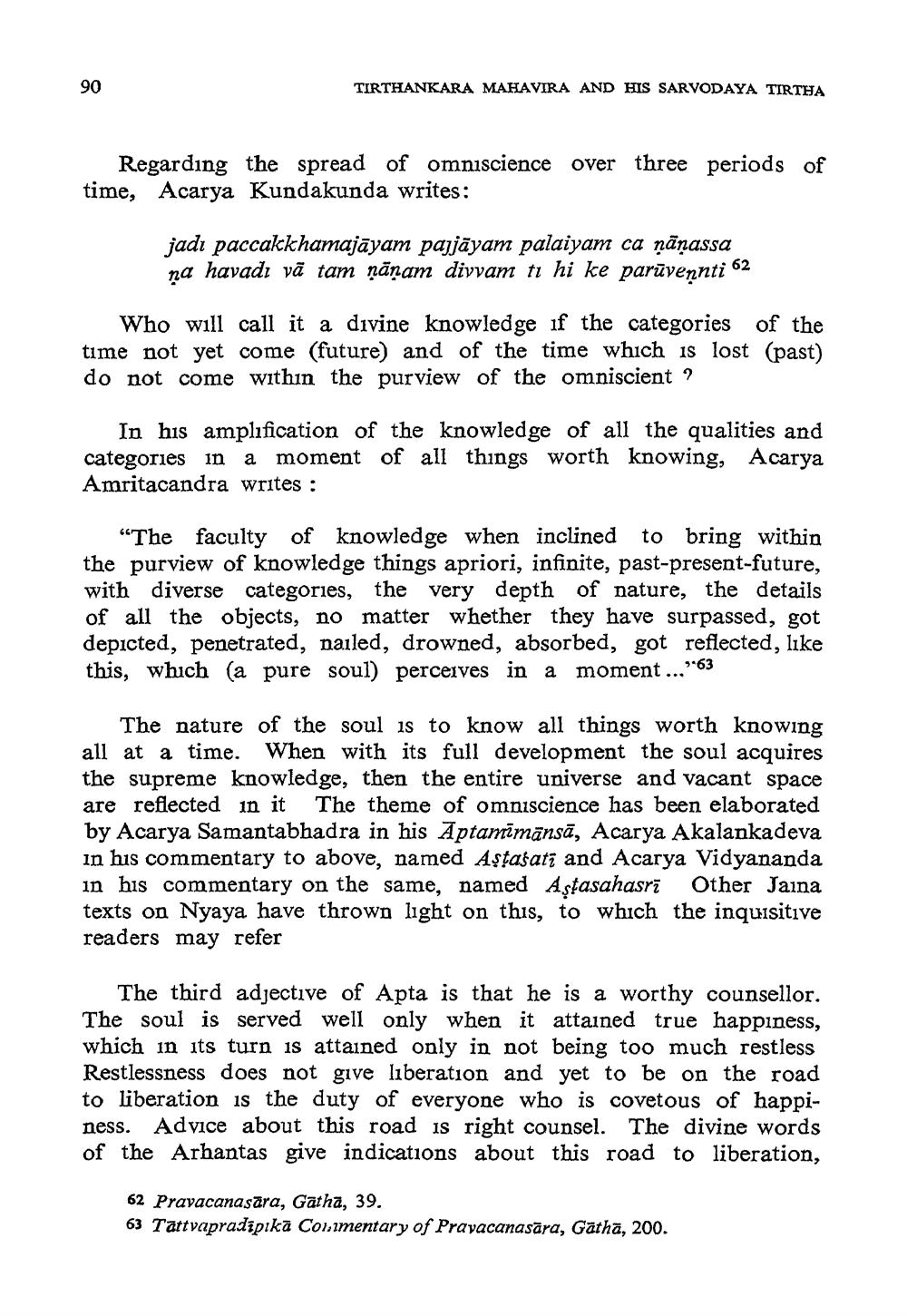________________
90
TIRTHANKARA MAHAVIRA AND HIS SARVODAYA TIRTHA
Regarding the spread of omniscience over three periods of time, Acarya Kundakunda writes:
jadi paccakkhamajāyam pajjāyam palaiyam ca ņānassa na havadı vā tam ņānam divvam ti hi ke parūvennti 62
Who will call it a divine knowledge if the categories of the time not yet come (future) and of the time which is lost (past) do not come within the purview of the omniscient ?
In his amplification of the knowledge of all the qualities and categories in a moment of all things worth knowing, Acarya Amritacandra writes :
“The faculty of knowledge when inclined to bring within the purview of knowledge things apriori, infinite, past-present-future, with diverse categories, the very depth of nature, the details of all the objects, no matter whether they have surpassed, got depicted, penetrated, nailed, drowned, absorbed, got reflected, like this, which (a pure soul) perceives in a moment..."-63
The nature of the soul is to know all things worth knowing all at a time. When with its full development the soul acquires the supreme knowledge, then the entire universe and vacant space are reflected in it The theme of omniscience has been elaborated by Acarya Samantabhadra in his Aptamīmānsā, Acarya Akalankadeva in his commentary to above, named Astašati and Acarya Vidyananda in his commentary on the same, named Astasahasrī Other Jaina texts on Nyaya have thrown light on this, to which the inquisitive readers may refer
The third adjective of Apta is that he is a worthy counsellor. The soul is served well only when it attained true happiness, which in its turn is attained only in not being too much restless Restlessness does not give liberation and yet to be on the road to liberation is the duty of everyone who is covetous of happiness. Advice about this road is right counsel. The divine words of the Arhantas give indications about this road to liberation,
62 Pravacanasāra, Gatha, 39. 63 Tattvapradipika Conimentary of Prayacanasāra, Gatha, 200.




